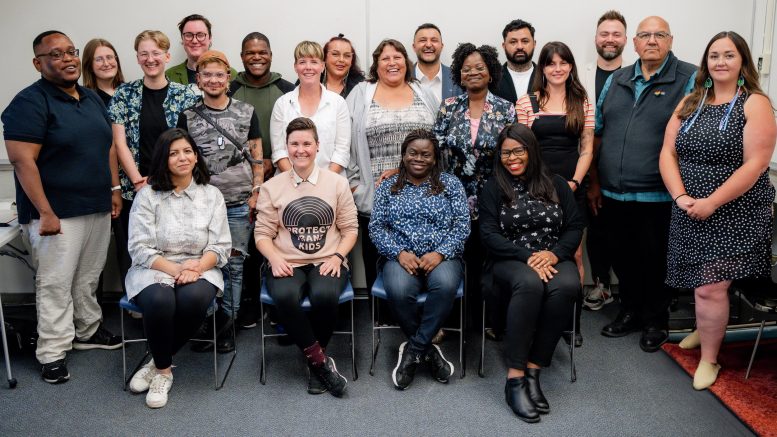At the U of M’s Village Lab, which explores the intersections of health and social sciences with a focus on marginalized communities, the Gigii-Bapiimin study examined the impact of COVID-19 on Indigenous people living with human immunodeficiency virus (HIV)/acquired immunodeficiency syndrome (AIDS).
The study’s name, Gigii-Bapiimin, is an Ojibwe expression that means “we survived.” For Ojibwe people meeting other groups in the spring, the term acknowledged survival of a long winter.
HIV is a sexually transmitted virus that, without treatment, may gradually destroy the body’s immune system and progress to AIDS. While the survival rate for untreated AIDS is around three years, early diagnosis and treatment allow most people with HIV/AIDS to live long, healthy lives.
More than half of those referred to Manitoba’s HIV Program are Indigenous. The Gigii-Bapiimin study noted that “systemic racism, colonialism and historical trauma have created barriers to accessing appropriate healthcare, resulting in late HIV diagnosis and limited access to treatment for Indigenous people.”
Researchers from the Village Lab used Indigenous story-work methods to interview 51 Indigenous people living with HIV during the COVID-19 pandemic in Manitoba and Saskatchewan.
“We got to hear a lot of different voices from the community across both provinces, and people really just were grateful for having their story heard,” said Melissa Morris, manager of the Village Lab and co-author of the study.
The study found that many Indigenous people living with HIV drew on cultural ceremonies, practices and medicines to cope with the pandemic. Social isolation and distancing negatively impacted their mental health and well-being, while also leading to increased substance use. Some participants noted difficulties accessing HIV care and medications.
“It’s an important study to just help address the needs,” said Morris. “If another intersecting pandemic occurs, how do we prepare ourselves properly and make sure that everyone has equitable access to services?”
The Gigii-Bapiimin study is only one of many research studies at the Village Lab.
“We want to make sure that the care we have in Manitoba […] is accessible for communities,” said Rusty Souleymanov, director of the lab. “How do we do it? We study different barriers and facilitators to care at the Village Lab,” he said.
One such study is the lab’s Migration and Health Study, aimed at using community-based research to better understand racialized migrants’ sexual health, as well as their susceptibility to HIV and other sexually transmitted infections.
The study came to several conclusions.
Migrants commonly have experiences with sexual trauma and therefore would benefit from trauma-informed care from service providers. Sexual and HIV stigma negatively impacts migrant communities and may be improved with public awareness destigmatization campaigns. Service providers should be able to provide referrals to sexual health clinics and organizations. Better access to sexual health information is needed, especially at community-based social service agencies. Additionally, sexual health information provided in diverse languages is valuable.
The lab also aims to strengthen the communities it serves by involving them in research. The Gigii-Bapiimin project, for example, was gifted its name by Elder Albert McLeod, a two-spirit Indigenous human rights activist who guides much of the lab’s work. McLeod’s role is to ensure the lab’s work remains relevant to the communities involved in it.
Marginalized people and community members are also employed in the lab and provided with opportunities that can help their careers move forward. “Our mission is to become a leader and catalyst in Manitoba for improving the health and wellbeing of key and priority populations,” said Souleymanov.



